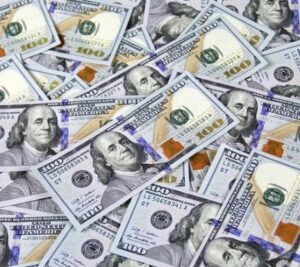Nigeria’s External Reserves Reach $40.11 Billion in July 2025 – CBN Governor Cardoso
Nigeria’s External Reserves Reach $40.11 Billion in July 2025 – CBN Governor Cardoso

Nigeria’s foreign reserves rose to $40.11 billion as of July 2025, marking a notable milestone, according to Central Bank of Nigeria (CBN) Governor, Yemi Cardoso. The announcement was made during the Monetary Policy Committee (MPC) meeting held on Monday, July 22, 2025.
Cardoso highlighted that the current reserve level equates to about 9.5 months of import coverage, reflecting a significant improvement in the nation’s external financial standing. This is the highest figure recorded since November 2024, when reserves stood slightly higher at $40.2 billion.
The increase signals a substantial recovery in Nigeria’s external buffers, underscoring the CBN’s ongoing efforts to stabilize the naira and bolster investor confidence.
—
Economic Indicators Reflect Growing Stability
The CBN attributed the improved reserve position to multiple positive trends in the economy, including:
Foreign Exchange Market: Sustained stability, bolstered by increased capital inflows
Crude Oil Output: Higher production levels supporting macroeconomic resilience
Non-Oil Exports: Upward trend contributing to a more diversified economy
Imports: Lower import volumes, aiding exchange rate stability
As of July 2025:
Gross External Reserves: $40.11 billion, covering approximately 9.5 months of imports
Capital Inflows: Continued growth, enhancing foreign exchange supply
Non-Oil Exports: Rising volumes helping to strengthen external earnings
Crude Oil Production: Improved output reinforcing national revenue
Imports: Decrease in demand easing pressure on foreign exchange reserves
—
Inflation Outlook Appears Promising
Governor Cardoso also shared insights into Nigeria’s inflation trajectory. Projections suggest a downward trend in inflation, supported by several key factors:
Tight Monetary Policy: Expected to maintain price stability
Exchange Rate Stability: Helping ease inflationary pressures
Falling Fuel Prices: Lower PMS costs reducing transport and production expenses
Harvest Season: Anticipated increase in food supply set to ease food prices
—
Looking Ahead: Upcoming MPC Meeting and IMF Forecasts
The MPC is scheduled to reconvene on September 22 and 23 to evaluate the economic landscape and determine the next steps for monetary policy.
In its latest assessment, the International Monetary Fund (IMF) projected Nigeria’s inflation to ease to 23% in 2025, with a further decline to 18% in 2026. The IMF also expects economic growth to climb from 2.9% in 2024 to 3.3% this year, buoyed by a rebound in oil production and stronger performance in agriculture.
TRENDING SONGS
 NPMA Appeals to Nigerian Government for Compensation After Lagos Market Fire
NPMA Appeals to Nigerian Government for Compensation After Lagos Market Fire
 Rest Every Four Hours, FRSC Issues Safety Guide for Fasting Motorists
Rest Every Four Hours, FRSC Issues Safety Guide for Fasting Motorists
 NNPC Boss Ojulari Bags UK Energy Institute Fellowship
NNPC Boss Ojulari Bags UK Energy Institute Fellowship
 Shock in Anambra: Bride Disappears Moments Before Wedding
Shock in Anambra: Bride Disappears Moments Before Wedding
 Nigerian Woman Returns ₦330 Million Accidentally Credited to Her Account
Nigerian Woman Returns ₦330 Million Accidentally Credited to Her Account
 APC Don Reach Morocco?’ VeryDarkMan Reacts to Seyi Tinubu Poster
APC Don Reach Morocco?’ VeryDarkMan Reacts to Seyi Tinubu Poster
 Bride Breaks Down in Tears as Wedding Meals Were Kept Secretly While Guests Go Home Hungry
Bride Breaks Down in Tears as Wedding Meals Were Kept Secretly While Guests Go Home Hungry
 Odogwu by Day, Robber by Night: How Marriage Joy Turned Into Tragedy
Odogwu by Day, Robber by Night: How Marriage Joy Turned Into Tragedy
 Nigerian Officials Allegedly Pocket N4–6B Weekly Through Smuggling Cartels at Seme–Badagry Border
Nigerian Officials Allegedly Pocket N4–6B Weekly Through Smuggling Cartels at Seme–Badagry Border
 Ahmad Yerima: Naval Officer to Face No Sanctions After Clash with Wike – Matawalle
Ahmad Yerima: Naval Officer to Face No Sanctions After Clash with Wike – Matawalle
Share this post with your friends on ![]()













